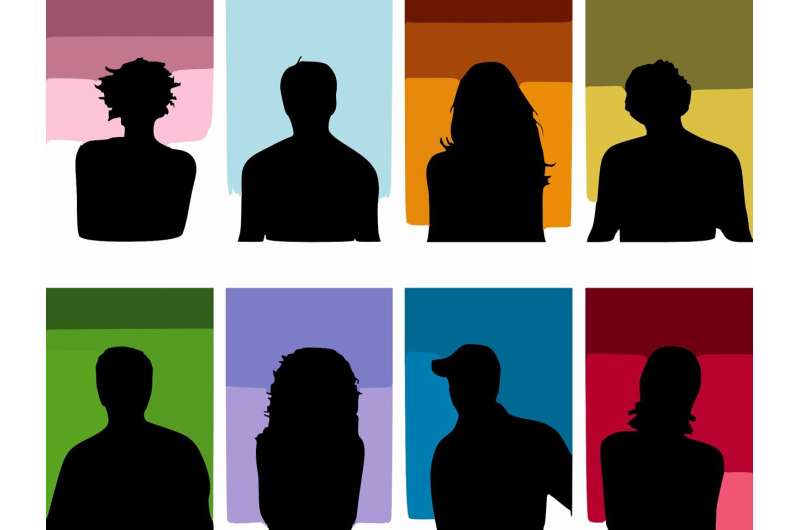This article has been reviewed according to Science X's editorial process and policies. Editors have highlighted the following attributes while ensuring the content's credibility:
fact-checked
proofread
Dissertation examines perceptions of 'Swedishness' and the boundaries of in-group membership

Who can claim to be Swedish? And when this claim is made, is it accepted by others? New research shows that despite the Swedish aversion to the concept of race, there is a clear image of Swedishness: white, blonde, and blue-eyed is still the standard definition.
In a new dissertation, doctoral student Caroline Adolfsson has examined perceptions of Swedishness using two constructed groups of people. One group of ethnic Swedes, that is, people with family ties, ancestry within Sweden, and who are usually white. And a second group that does not have such connections with the country.
When she compares the answers, the word race evokes very negative feelings, especially in the white, ethnic Swede group.
In EU countries, as in Sweden, "ethnicity" is often preferred to "race," although race is sometimes used within academia. In other Western countries, such as the United States, the United Kingdom and Australia, racial-ethnic identity is sometimes used as a hybrid term which can refer to a spectrum of identities relating to both terms, but the word "race" is also often used on its own, explains Adolfsson.
"Many countries in Europe react to the word because of the Holocaust, as group identities were used to justify genocide. But in Sweden, the aversion evokes a very negative emotional response, and that feeling is more common among those who are part of the ethnic group. They are almost hostile to the word," says Adolfsson, a Ph.D. student at the Department of Global Political Studies.
"It is noteworthy that while the group of predominantly white respondents describes the division into races as something very negative, they define Swedishness with a white person. Despite the reluctance, they thus define themselves 'racially,'" says Adolfsson.
She emphasizes the empirical evidence that people make this connection between Swedishness and whiteness.
"The fact that it can be difficult to talk about these things may be due, among other things, to a dislike of the perception of the biological link in the concept of race. The fact that Sweden had the National Institute for Racial Biology (which had a stated purpose of studying eugenics and human genetics) may be one reason why the word has such a negative connotation here," Adolfsson says.
Although race can be seen as a social construct, according to Adolfsson, it can still have consequences for people, as it is linked to political, historical, and social meanings.
Therefore, people still identify themselves and others as part of racial groups, and this can have different meanings for different people in different places. Even if some people want to be color blind, we are not," she says.
Sweden is becoming one of the most diverse countries in the Western world. At the same time, there is a perception that Swedes look a certain way.
More information: Caroline Adolfsson, We don't use the word race': Boundaries of in-group membership in Sweden (2024). DOI: 10.24834/isbn.9789178774623
Provided by Malmö University



















